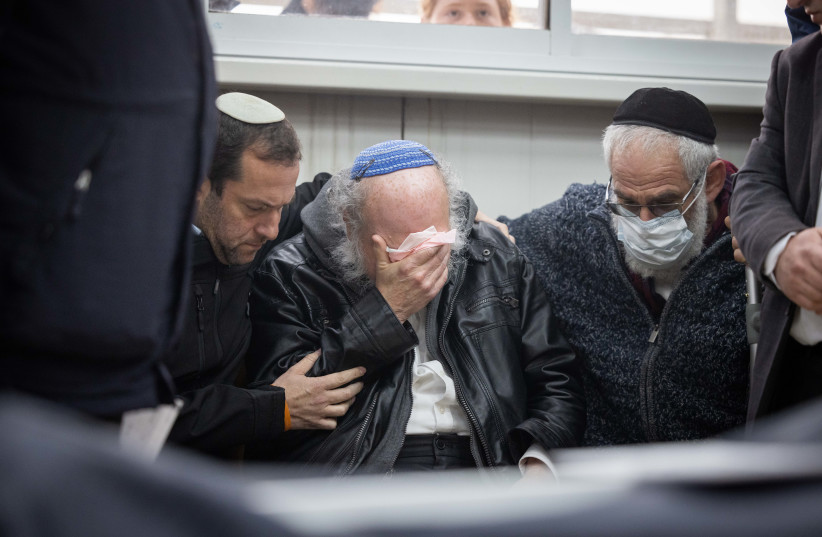It was 1993. Jonathan Pollard had just married Esther Zeitz, from Canada’s Chomedey, Laval. Funny, I said to myself, I knew an Elaine Zeitz from that area – a dark-haired, head-turning beauty who was at The Hebrew University of Jerusalem in 1976-77 when I studied there on the one-year program. It must be her sister.
Since I was working at The Jerusalem Post, I headed to the photo archives to peruse pictures of sister Esther. It didn’t take long for me to realize that these photos were not of Elaine’s sister. Elaine had morphed into Esther – a modern-day Esther who was ready to take her place in Jewish history.
But I knew her as Elaine all those years ago, when we lived across the hall from each other in the sweltering bungalow of Shikunai Ha’elef while studying at the university’s ulpan. It was the summer of the heroic rescue of Israeli hostages in Entebbe. We had arrived in Jerusalem on July 5, 1976 – the day after the IDF made history in its daring raid to bring the hostages home from Uganda. Euphoria, pride and relief permeated the country.
Elaine – with her long, pitch-black hair that matched her piercing dark eyes – had come to Israel to study English literature for a master’s degree. That summer, she shared a room with Shira. When we were relocated to Mount Scopus for the academic year, the three of us were assigned to the same Resnick dormitory, where we bonded together, since we were the only Anglos in the building. In my very naive 19-year-old eyes, Elaine was a full-fledged grownup. She had already been married and divorced. (Wow, I remember thinking, none of my peers were even close to finding a life partner.)
During that fateful year, we were often nourished by the bowls of Shira’s homemade vegetable soups, while tripping over each other in the cramped, narrow kitchen of the Resnick dormitory. Between savoring our soup and sandwiches, we intellectually nourished ourselves with heated discussions about religion, politics and the role of women in Judaism.

Elaine had her opinions – and you had better be sure of yours if you dared to cross her. Back in that magical year abroad, I watched in awe as she would take on any interlocutor, holding a cigarette in one hand and a glass of white wine in the other.
Years later, it didn’t surprise me that this stunning woman whom I remembered – with her Katharine Ross looks (like “Elaine” in The Graduate) mixed with a Margaret Thatcher-style self-confidence – would take on the US government, the international press, and some of Pollard’s fiercest critics in her fight to get her husband released from a US Federal prison.
By all accounts, 1977 was a pivotal year. That spring, Menachem Begin had come to power in an electoral victory that shocked the country. But by that time, those of us on our year abroad were also intent on our personal “next steps” as we packed our belongings and preserved our memories in pictures and heartfelt hugs.
For me, it also meant the uneasy anticipation of returning to my college campus, finishing my undergraduate degree, and kick-starting my journalism career. In the shuffle and readjustment to life in America, I lost touch with Elaine and the trajectory of her journey.
Years later, Elaine would enter the world stage as Esther, embracing a destiny that few would have taken upon themselves. Her tenacity and grit that I had come to know so well during that year in Jerusalem – between glasses of wine and bowls of soup – were now there for all to see as she marched fearlessly onto the pages of history.
May her memory be a blessing.
The writer is a member of The Jerusalem Post’s editorial staff.
